How To Prevent And Cure Aggressive Chicken Pecking?
Aggressive chicken pecking, or even cannibalism, is not rare in chicken farming. Common pecking addictions include feather pecking, anal pecking, toe pecking, egg pecking, flesh pecking, pica, and other vices. It may occur all year round among any type of chickens on any day, especially in high-density breeding scenarios. High-yielding laying hens and chicks are more likely to exhibit these symptoms, which are not an infectious disease but can quickly affect the entire chicken flock once one chicken gets them. It not only affects the health of chickens and hinders egg productivity and meat growth but also leads to economic loss for chicken farmers. If you use chicken battery cages, you should pay attention to preventing and stopping chicken pecking.
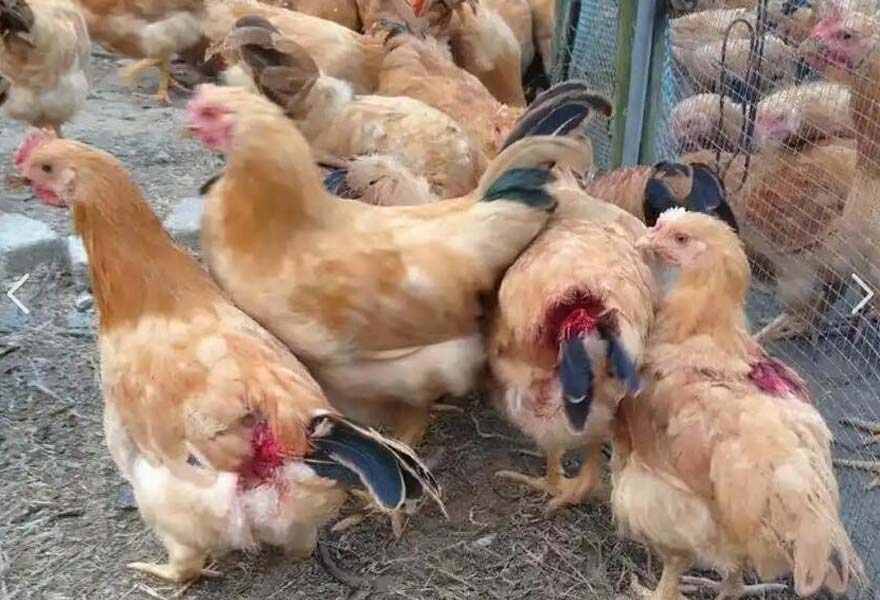
Today, we will examine the causes of chicken pecking and offer effective solutions to address this issue. First, let’s identify the different behaviors of chicken pecking addiction.
- Feather pecking: Chickens peck at feathers on other chickens’ backs, tail tips, etc., causing feathers to fall off and tissue to bleed.
- Anal pecking: Anal pecking is more common in laying hens that get anal prolapse or tears, or uterine prolapse after egg laying. Broiler chickens are most likely to suffer from anal pecking during the growth and food restriction stage.
- Egg pecking: Breeding hens are prone to egg pecking during the peak egg-laying season, often accompanied by soft-shelled eggs or thin-shelled eggs.
- Toe pecking: Chicks are prone to toe pecking because of hunger.
- Flesh pecking: Flesh pecking happens at any stage of chickens’ growth. At first, chickens peck at feathers to dispose of skin and flesh. Then it developed into flesh pecking.
Reasons for aggressive chicken pecking
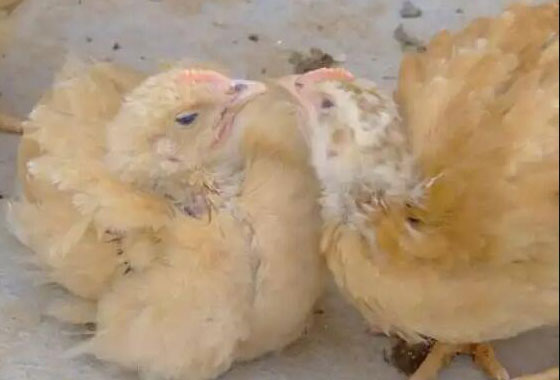
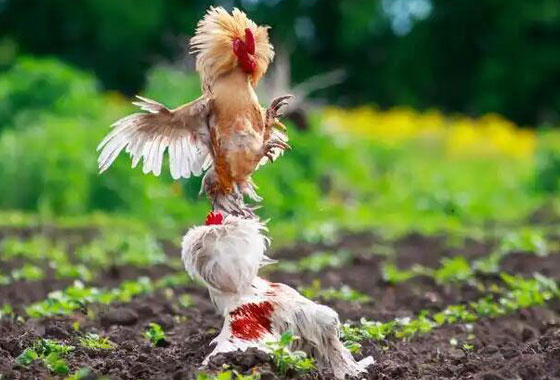
There are many reasons for chicken pecking, including breeding management, nutrition, disease, parasite, species, etc.
Poor breeding management can lead to chicken pecking. Over high ammonia concentration due to bad ventilation, uncomfortable or too bright light, unsuitable temperature and humidity, too crowded, etc. environmental factors. Lack of food and water, changes in feeding times, delay of feedings, etc., are also common reasons for chicken pecking. Insufficient rations can cause chickens to feel hungry due to long intervals between foraging or feeding, leading to pecking.
Nutrition issues lead to chicken pecking. Unreasonable diet, insufficient protein, imbalance of amino acids, excessive plant protein, insufficient animal protein, insufficient sulfur amino acids, calcium, minerals, salt, vitamins, and crude fiber.
Chicken pecking resulted from diseases. Diseases such as coccidiosis, Escherichia coli, pullorum, and indigestion can cause pecking; chronic enteritis causes poor nutrient absorption, leading to mutual pecking; salpingitis or cloacal exstrophy causes pecking; skin scabies or other external parasites can irritate the skin, and the sick chickens will first peck their own feathers. After being traumatized, the other chickens will peck at the injured area; long-term diarrhea and dehydration caused by certain diseases, bleeding from trauma, and prolapse of the anus during the laying period can also induce pecking.
Sudden changes in the environment or external disturbances, such as noise, epidemic prevention, high temperature, group transfer, feed change, and the start of production, can all cause the occurrence of pecking disorder.
Different breeds of chicken vary in pecking behavior. For example, local breed chickens are active and prone to pecking and fighting. The incidence rate in hens is higher than that in roosters, and early-maturing hens are also prone to pecking.
Other chickens experience itchy skin during molting and may peck their own feathers, thus inducing group feather-pecking behavior.
Measures to prevent and cure aggressive chicken pecking
Isolation
Timely isolation is important. Once chickens are found to have been pecked, they should be immediately picked out and kept in isolation.
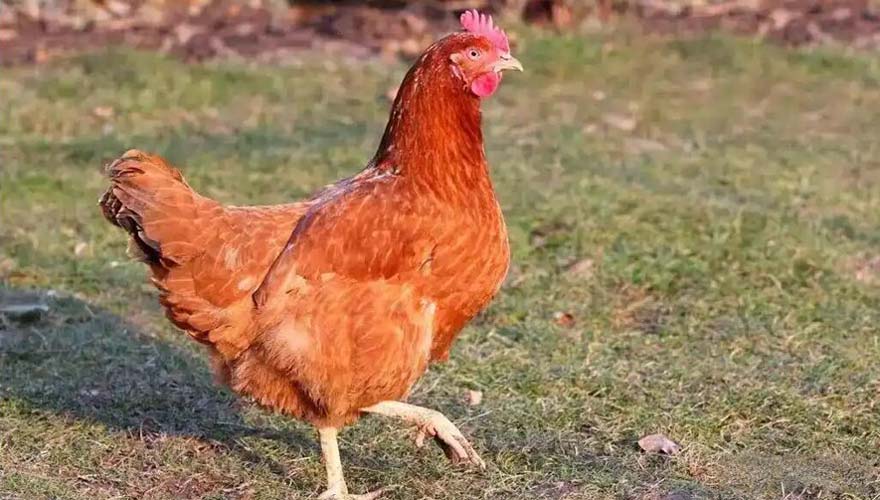
Drug treatment
Apply strong, bitter anti-inflammatory drugs such as gentian violet, berberine, and chloramphenicol to the pecked area. On the one hand, it reduces inflammation, and on the other hand, it makes the chicken feel bitter and retreat.
Reasonable grouping
Chickens should be grouped according to their breed, age, gender, size, and strength to avoid pecking.
Beak trimming
Beak trimming is conducive to preventing pecking and reducing feed waste. It is best to ask professionals to do the surgery. The time for beak trimming is when chicks are 7 to 10 days old.
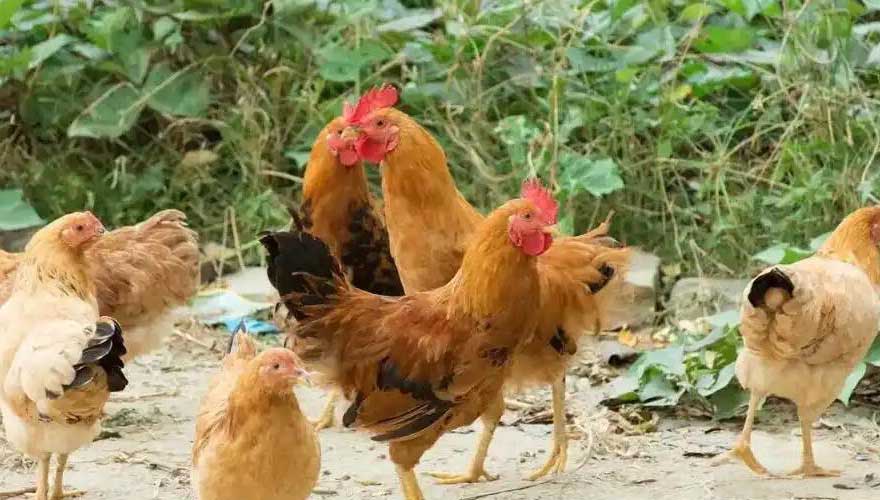
Scientific light control
Avoid too much light and control the time of light. The upper limit refers to the brightness of an incandescent lamp of 3 watts/square meter. Controlling the light volume, using warm light bulbs if necessary, and avoiding the pecking resulting from premature maturation.
Lower stocking density
Lower the stocking density and provide enough space for the chickens to reduce the chance of pecking. The ideal stocking density is 20 chicks/㎡, 7-8 growing chickens/㎡, and 5-6 adult chickens/㎡.
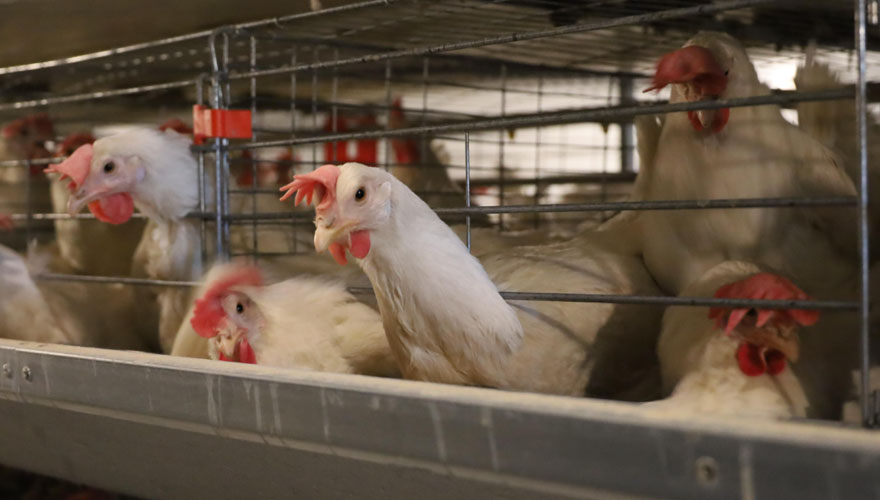
Good ventilation
The chicken house should be well ventilated to minimize the concentration of harmful gases in the house. The temperature should be maintained at 18-25℃, and the relative humidity should be 50%-60%.
Scientific diet
Prepare a reasonable diet that is nutrition-balanced. The corn content is better not over 65%. To avoid a single feed, pay special attention to the balance of amino acids in animal-free protein formula. An addition of 0.2% methionine can effectively lower the chance of chicken pecking. The supplementation of 0.5-3 grams of gypsum powder per day for each chicken helps stop the feather-pecking habit. For feather pecking caused by salt deficiency, 1.5%-2% salt can be added to the daily diet for 3-4 consecutive days. Do not repeat it for a long time to avoid salt poisoning.
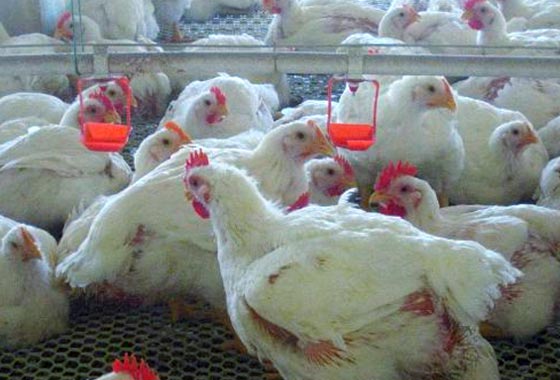
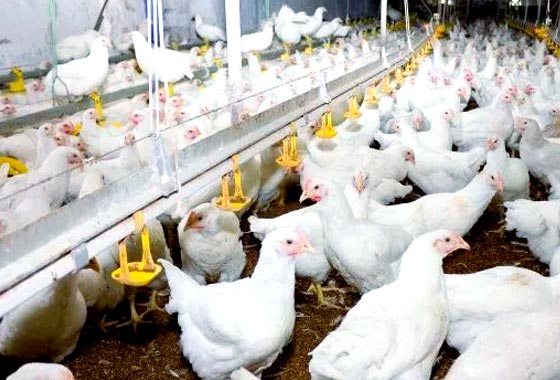
Distract attention
Distract the attention of chickens that have developed a pecking habit. You can dim the lights in the house or use red lights, or place vines, tubers, and green vegetables in the house for the chickens to peck at to distract their attention.
Wear chicken eyeglasses
Make chickens wear eyeglasses. Wearing eyeglasses can block chickens’ front view so that they can only see the sides and below, thus reducing fighting and pecking caused by direct vision.
Regular deworming and disease prevention
Take measures to regularly remove external parasites from your chickens to effectively control intestinal diseases. If necessary, administer medication to prevent uncontrolled pecking.
Reduce stress factors
Provide a quiet and comfortable environment for chickens, reducing the impact of various stress factors on the chickens.
As the reasons for chicken pecking are different, chicken farmers should pay attention to daily management and take all factors into consideration. It is better to put prevention before cure.

 A 5-tier H type layer cage system installed in West Africa
A 5-tier H type layer cage system installed in West Africa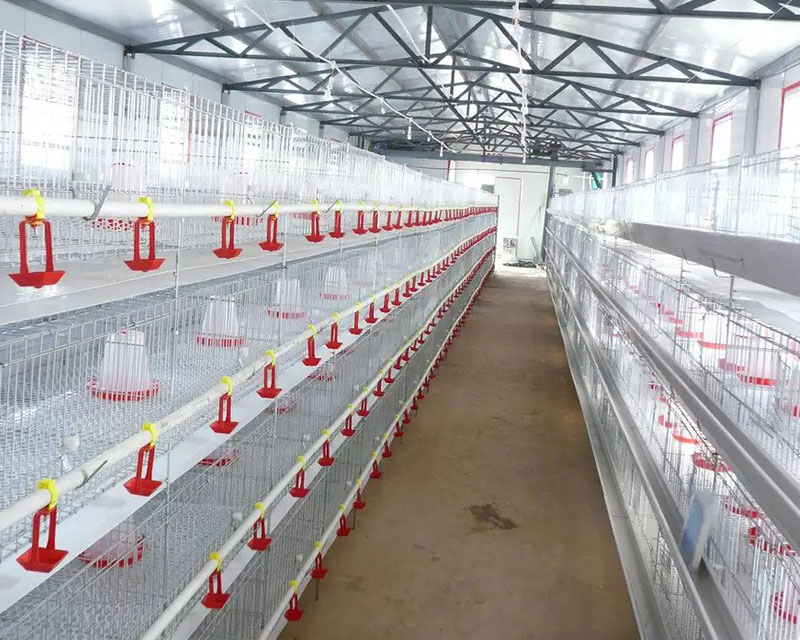 4 Tier H Type Broiler Cage Project In South Africa
4 Tier H Type Broiler Cage Project In South Africa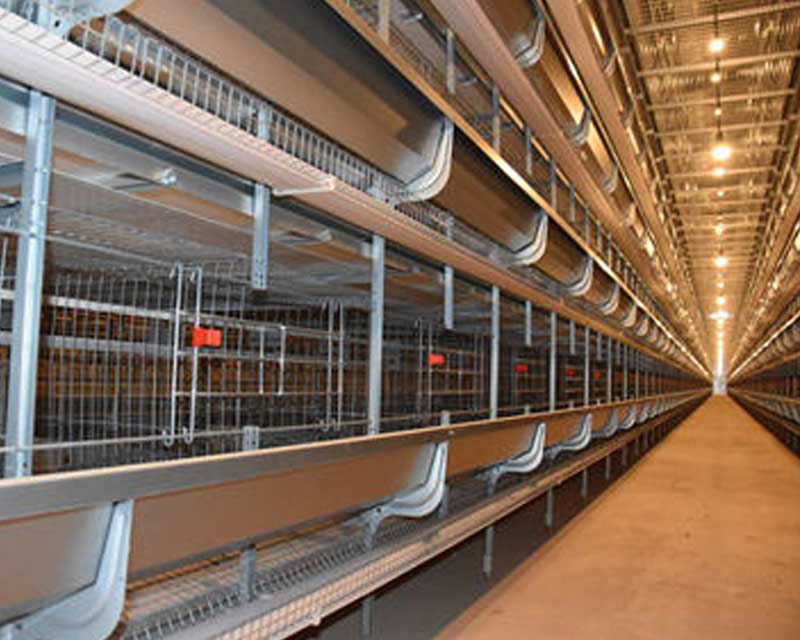 Layer Cage Project In Cuba
Layer Cage Project In Cuba H Type Layer Cage Project In Southeast Asia
H Type Layer Cage Project In Southeast Asia A Type Layer Cage Installed In West Africa
A Type Layer Cage Installed In West Africa Nigeria H Type Layer Cage Project
Nigeria H Type Layer Cage Project